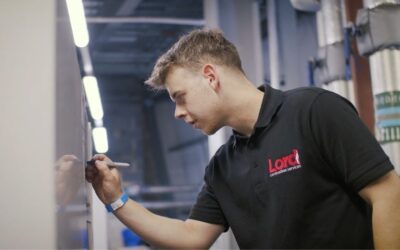The heating industry is changing rapidly. Across the UK, businesses and organisations are coming under growing pressure to reduce carbon emissions and adopt renewables.
As a company that has worked for decades installing and maintaining heating and boiler systems across the West Midlands and beyond, Lord Combustion Services recognises that sustainability must be a priority. But we also know that practicality cannot be ignored.
For many commercial settings such as hospitals, schools, care homes and large public buildings, heating and hot water are not simply comforts but critical services. The HVAC systems in these environments have to operate reliably all year round, whatever the weather.
Recently, we’ve seen a rise in the use of renewables like air source heat pumps, and while they do offer a promising path toward lower-carbon heating, they’re not the right fit for every situation.
The push towards renewables
Air source and ground source heat pumps have increasingly been championed as key solutions in the push towards Net Zero. They use electricity to draw heat from the air or ground, producing efficient heating with much lower carbon output compared to traditional boilers.
For many homes and small businesses, this can be an effective and environmentally friendly choice. With good insulation, a suitable building layout and moderate heat demand, a heat pump system can deliver consistent warmth at lower running costs over time.
Yet, for larger or more complex buildings, the picture is much more complicated. In commercial or institutional settings, the heat demand is often high and continuous. Spaces such as hospitals and schools require dependable hot water and heating throughout the year, and even brief interruptions can cause serious problems.
When air source heat pumps struggle
Air source heat pumps perform well in mild conditions but can face difficulties in chillier weather. In the depths of a cold British winter, when outside air temperatures fall close to freezing, operating efficiencies can fall dramatically and in some cases, the outdoor coil can start to ice over.
As a consequence, the units can enter defrost cycles. In some commercial applications additional backup heating provision may be required to ensure continuation of services.
For critical facilities such as hospitals or care homes, this can be a serious concern. Reliability is not negotiable in these settings, and systems must deliver consistent heat output even during the coldest nights.
While technology continues to improve, and newer heat pump models are becoming more capable in lower temperatures, they still don’t offer a one-size-fits-all solution. It’s vital to assess each site individually and choose systems that suit the building’s purpose, layout and energy demands.
Hydrogen and the future of gas
While the conversation often centres on heat pumps, hydrogen also offers potential as part of the future energy mix. Hydrogen can be produced from renewable sources and is not a fossil fuel, with the resulting environmental advantages when burned.
Many in the heating industry see it as a cleaner replacement for natural gas, especially for applications where electric heat is less practical. However, the transition won’t be simple. The UK’s existing gas infrastructure will need significant upgrades to handle hydrogen safely and efficiently.
Appliances and boilers will also need to be compatible with hydrogen, which means gradual replacement or adaptation over time. But even with these challenges, hydrogen could play a key role in de-carbonising heating for larger buildings and industrial sites where high heat output is required.
Unlike electricity-based systems, hydrogen can be stored and transported, offering flexibility for times of peak demand or when renewable electricity supply is limited.
A practical path to sustainability
The challenge for the commercial heating industry is to strike the right balance between progress and practicality. We must continue to support the drive towards renewables and cleaner energy, while recognising that not all technologies are suitable for every building.
In our experience, the most effective approach is a blended one. For some sites, this may mean integrating renewables such as heat pumps or solar thermal systems alongside efficient gas or hydrogen-ready boilers.
For others, it may involve upgrading existing systems to modern, high-efficiency condensing boilers while planning for future conversion to low-carbon fuels.
Each project should begin with a thorough assessment of the building’s needs, usage patterns and infrastructure. What works for a new office block with excellent insulation may not be appropriate for a century-old school or a 24-hour hospital ward. By matching the technology to the environment, we can ensure both sustainability and performance.
The importance of professional guidance
As regulations tighten and technologies evolve, our role as experienced heating engineers is not only to install systems but to advise clients honestly about what will work best for their facility. Sustainability targets are essential, but so is ensuring that heating systems deliver comfort, safety and reliability every single day.
Choosing the wrong technology for the wrong setting can lead to higher costs, reduced efficiency and unnecessary disruption. But systems that are properly designed, installed and maintained can deliver excellent performance while helping businesses meet their environmental goals.
At the heart of it all is balance; understanding that sustainability and practicality must work hand in hand. As installers and service providers, our goal is to help our clients find the solutions that make sense for their buildings today, as well as preparing them for the future.
Lord Combustion has a wealth of experience in advising businesses on how to achieve both reliability and sustainability from their HVAC systems. If you’re considering renewable technologies but aren’t sure it’s the right approach for your organisation, get in touch with our team today.




